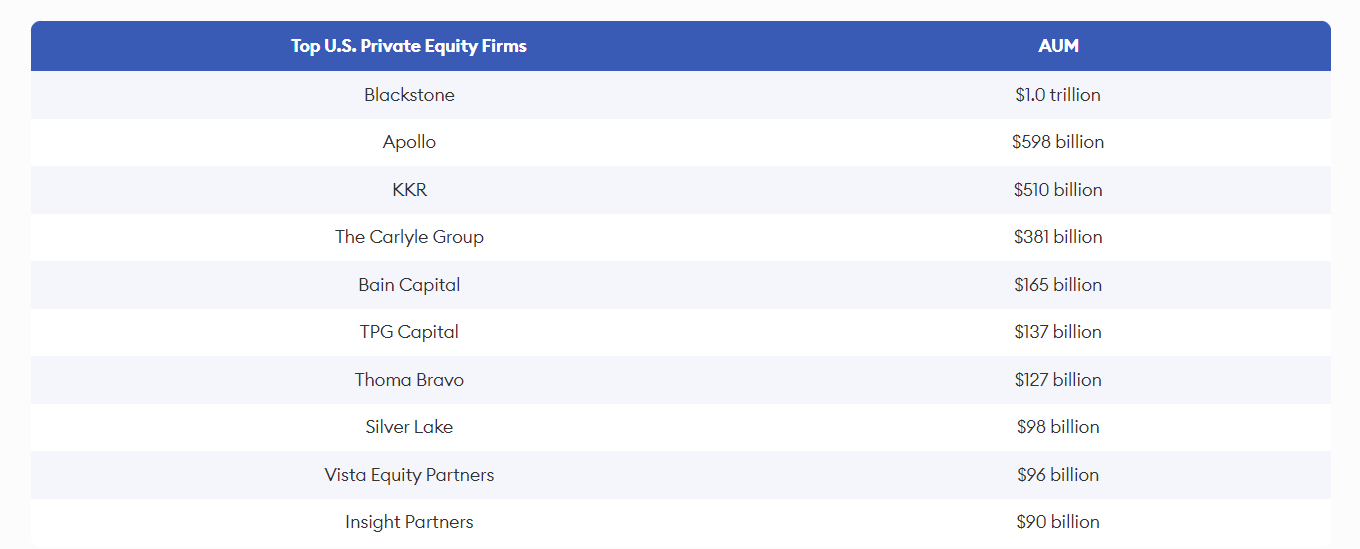Welcome to DU!
The truly grassroots left-of-center political community where regular people, not algorithms, drive the discussions and set the standards.
Join the community:
Create a free account
Support DU (and get rid of ads!):
Become a Star Member
Latest Breaking News
Editorials & Other Articles
General Discussion
The DU Lounge
All Forums
Issue Forums
Culture Forums
Alliance Forums
Region Forums
Support Forums
Help & Search
General Discussion
Showing Original Post only (View all)The Secretive Industry Devouring the U.S. Economy [View all]

Private equity has made one-fifth of the market effectively invisible to investors, the media, and regulators.
https://www.theatlantic.com/ideas/archive/2023/10/private-equity-publicly-traded-companies/675788/
https://archive.ph/tewjm

The publicly traded company is disappearing. In 1996, about 8,000 firms were listed in the U.S. stock market. Since then, the national economy has grown by nearly $20 trillion. The population has increased by 70 million people. And yet, today, the number of American public companies stands at fewer than 4,000. How can that be?
One answer is that the private-equity industry is devouring them. When a private-equity fund buys a publicly traded company, it takes the company private—hence the name. (If the company has not yet gone public, the acquisition keeps that from happening.) This gives the fund total control, which in theory allows it to find ways to boost profits so that it can sell the company for a big payday a few years later. In practice, going private can have more troubling consequences. The thing about public companies is that they’re, well, public. By law, they have to disclose information about their finances, operations, business risks, and legal liabilities. Taking a company private exempts it from those requirements.
That may not have been such a big deal when private equity was a niche industry. Today, however, it’s anything but. In 2000, private-equity firms managed about 4 percent of total U.S. corporate equity. By 2021, that number was closer to 20 percent. In other words, private equity has been growing nearly five times faster than the U.S. economy as a whole. Elisabeth de Fontenay, a law professor at Duke University who studies corporate finance, told me that if current trends continue, “we could end up with a completely opaque economy.”
This should alarm you even if you’ve never bought a stock in your life. One-fifth of the market has been made effectively invisible to investors, the media, and regulators. Information as basic as who actually owns a company, how it makes its money, or whether it is profitable is “disappearing indefinitely into private equity darkness,” as the Harvard Law professor John Coates writes in his book The Problem of Twelve. This is not a recipe for corporate responsibility or economic stability. A private economy is one in which companies can more easily get away with wrongdoing and an economic crisis can take everyone by surprise. And to a startling degree, a private economy is what we already have.
snip

InfoView thread info, including edit history
TrashPut this thread in your Trash Can (My DU » Trash Can)
BookmarkAdd this thread to your Bookmarks (My DU » Bookmarks)
15 replies, 1917 views
ShareGet links to this post and/or share on social media
AlertAlert this post for a rule violation
PowersThere are no powers you can use on this post
EditCannot edit other people's posts
ReplyReply to this post
EditCannot edit other people's posts
Rec (28)
ReplyReply to this post
15 replies
 = new reply since forum marked as read
Highlight:
NoneDon't highlight anything
5 newestHighlight 5 most recent replies
= new reply since forum marked as read
Highlight:
NoneDon't highlight anything
5 newestHighlight 5 most recent replies
take it private, strip the assets, sell off anything worth a cent and get rid of the workers nt
msongs
Oct 2023
#2
That practice is the result of what is now known as "financial engineering".
LastDemocratInSC
Oct 2023
#7